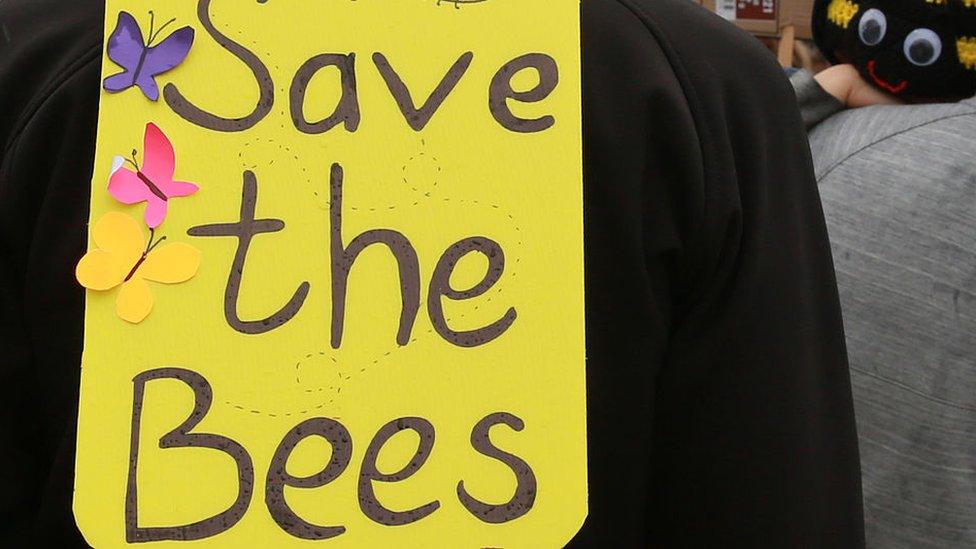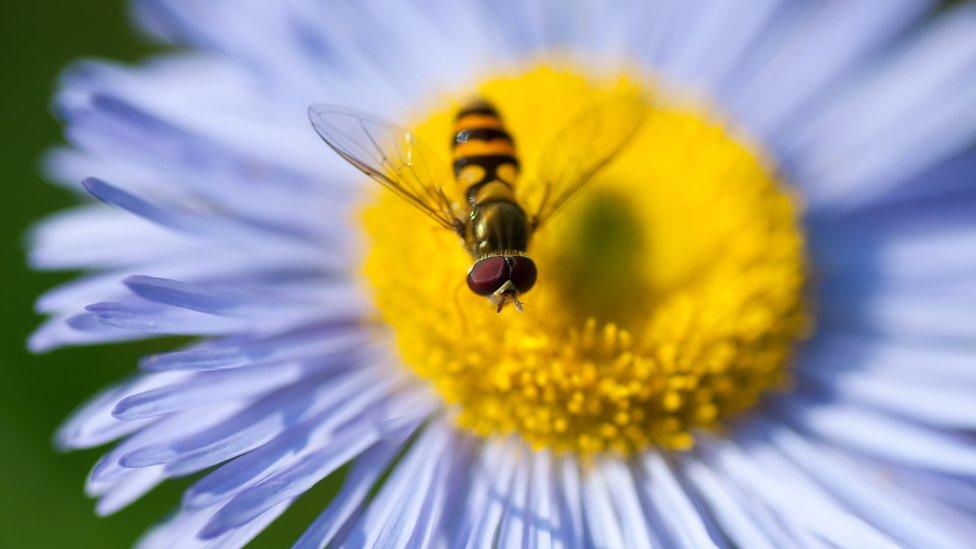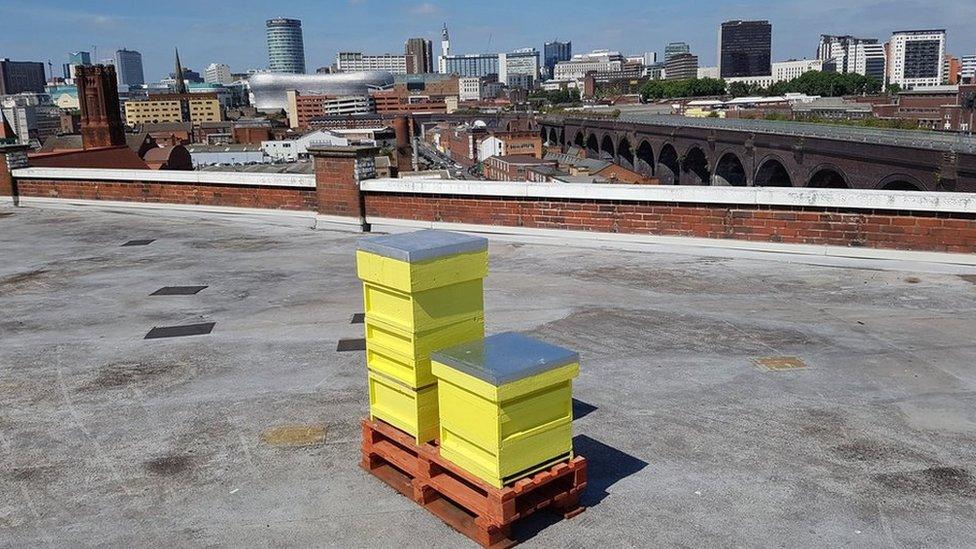South African bees: 'One million die in Cape Town'
- Published

"Beekeepers were finding dead bees in front of their hives," a bee farmer says
At least one million bees are suspected to have died of poisoning in a wine-producing area of South Africa.
Brendan Ashley-Cooper told the BBC that an insecticide used by wine farmers, Fipronil, was thought to have killed the insects on his farm.
Other honey bee farmers in the area around Cape Town have also been affected, but it is still unclear how many of the insects have died, he said.
Fipronil has been blamed for the deaths of millions of honey bees in Europe.
Campaigners say Fipronil is highly toxic to insects, and its use was restricted in Europe in 2013.
About 100 of his bee hives, or 35% to 40% of those he owned in the affected areas, had been hit by the disaster, said Mr Ashley-Cooper, the vice-chairman of the Western Cape Bee Industry Association.
He estimated this meant between 1-1.5 million bees had been killed.
It is unclear how many bees there are in South Africa, but the deaths would not make much difference to their overall population, he said.
'Less honey for Christmas'
Fipronil was also at the centre of an egg scandal in Europe this year.
Millions of eggs were pulled from supermarket shelves in more than a dozen European countries, including the UK, after it was discovered that some had been contaminated with the insecticide.
Fipronil is commonly used to get rid of fleas, lice and ticks but is banned by the European Union for use on animals destined for human consumption, such as chickens.
Fipronil had been used by wine farmers in the Cape Town area for a long time to control the ant population, but this was the first time the insecticide was suspected to have caused the deaths of bees, Mr Ashley-Cooper said.

Activists are concerned about the declining population of bees
Further tests were being done to confirm whether it was to blame, and both wine farmers and the government were working with bee farmers to tackle the problem, he added.
Both managed and wild bee hives in Cape Town's southern areas had been affected, Mr Ashley-Cooper said.
"A week ago we started getting calls that beekeepers were finding dead bees in front of their hives," he added.
"A large majority of hives have been affected," Mr Ashley-Cooper said.
There would be a small impact on honey production, and "some uncles and aunties will have to go without honey this Christmas", he said.
- Published28 February 2018

- Published12 March 2017

- Published11 August 2017
